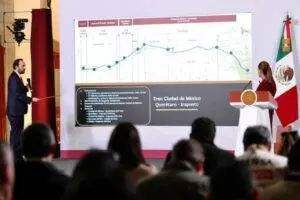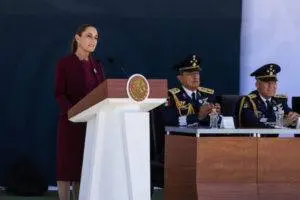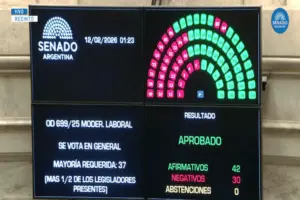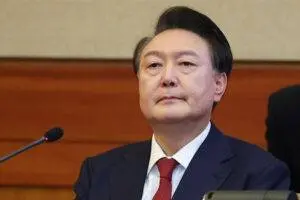by David Raby

Mexico’s success under AMLO (President Andrés Manuel López Obrador) has been remarkable, with a wide array of new welfare programmes, public works of benefit to the entire nation, restoration of national control of key resources such as oil, gas, electricity and lithium, economic prosperity and an unprecedented reduction of poverty and inequality.
In a world plagued by worrying advances of the extreme right, Mexico has been immune to such threats and recently held general elections in which the ruling Morena party and its allies succeeded in electing a new President, Claudia Sheinbaum, with nearly 60% of the vote and a 32% lead over her closest rival. On 1 October Claudia – the first woman to rule this great country of 130 million people, a scientist trained in environmental studies, a model of integrity, progressive principles and democratic commitment – will take office to continue the “Fourth Transformation” (4T) which is an example for the entire hemisphere, indeed for the world.
Not only did Morena and the “Let’s Keep Making History” coalition win the presidency, they managed – to the surprise of many and the consternation of the corrupt right-wing establishment – to win two-thirds super-majorities in both houses of the Mexican Congress. This is extremely important because it makes possible constitutional reforms, which the right had been blocking and which amounted to the greatest obstacle to further progress.
Despite AMLO’s very extensive and successful reforms and his immense popularity (he leaves office with 73% approval), many of his measures were hamstrung by injunctions and stays of execution imposed by the extremely corrupt judiciary, the greatest remaining bastion of conservative power in the country.
To give an idea, twice in the last three years the Supreme Court has accepted injunctions requested by right-wing politicians against AMLO’s electricity reform, which provides for over 50% national public ownership of electric power generation and distribution and reinforces the capacity of the Federal Electricity Commission (CFE by its Spanish initials). AMLO succeeded in implementing it in practice anyway, but has not been able to entrench it by constitutional reform.
Despite AMLO reducing his own salary by more than 50% and abandoning all expense-account privileges, and passing a law obliging all other high public officials to do the same, the Supreme Court justices took out injunctions allowing themselves to earn three times as much as the President and to have private planes, cars, insurance and other privileges and for other prominent officials to do likewise.
Judges from the Supreme Court downwards have also shown blatant collusion with convicted criminals or those indicted of serious offences including kidnapping, rape, murder and extortion, granting them house arrest and other benefits.
As is to be expected, this has made judges and magistrates extremely unpopular, but they are impervious to criticism and when AMLO and Morena (and now Claudia Sheinbaum) propose root-and-branch judicial reform, they claim that democracy is under threat and accuse the government of dictatorship. The proposed reform would have judges elected from lists of candidates with legal training, to hold office for limited terms.
This is only one of 20 proposed constitutional reforms put forward by AMLO and backed also by Claudia, although it is clearly the most important because without it the judiciary, one of the fundamental powers of the state, will continue to block other progressive reforms.
This and other reforms may well be passed in the coming weeks: while the new President takes office on 1 October, the new Congress took office on 1 September and is already in session. The existing judiciary has gone on strike (a purely political strike, since they have no salary or work-related claims), an illegal action which only creates further tension.
In the meantime, AMLO has been even more busy than usual, touring the country to inaugurate public works before leaving office; Claudia Sheinbaum has been touring with him, also speaking of her plans and listening to people, showing that she has every intention of continuing the 4T Transformation and extending the welfare programmes – now regarded not as programmes but as rights – and adding more of her own. These include extending the old age pension to women aged 60 to 64, recognising their special needs; making the “Benito Juárez” grants for students in primary and secondary education (at present means-tested and limited to those from deprived backgrounds) universal; and the elimination of re-election for Congress members.
Claudia declares that she will inaugurate the “Second Floor” of AMLO’s Transformation; she vigorously denies that she is just a surrogate for the outgoing President, pointing out that while of course she shares his basic principles and outlook, she has her own views and her own background, having been active in the student movement 40 years ago.
“It is the Time of Women” proclaims Claudia: her own election is symbolic of a much broader change. The formidable Rosa Icela Rodríguez, AMLO’s Security Chief, becomes Home Secretary; a new Ministry for Women is headed by Citlalli Hernández, formerly General Secretary of Morena; Tatiana Clouthier runs the Institute for Mexicans Abroad; Emilia Esther Calleja runs the Federal Electricity Commission; Leticia Ramírez is Minister of Intergovernmental Relations and Social Participation; Josefina Rodríguez is Minister of Tourism; Claudia Curiel, Minister of Culture; Ariadna Montiel continues as Minister of Welfare, the post she held under AMLO; Edna Elena Vega takes charge of SEDATU, the Agricultural, Urban and Regional Planning Ministry which became a crucial instrument of development under the young Román Meyer for AMLO; Raquel Buenrostro takes over the Civil Service Ministry, having been AMLO´s Economy Minister; Luz Elena González becomes Minister of Energy; Alicia Bárcena, AMLO’s Foreign Secretary, takes charge of the Environment Ministry; Rosaura Ruiz will run the new Ministry of Science, Humanities, Technology and Innovation; and the brilliant young Luisa María Alcalde, outgoing Home Secretary, becomes leader of the Morena party.
The new Metro Mayor of Mexico City is an outstanding left-wing woman, Clara Brugada, former Mayor of the huge Iztapalapa borough and pioneer of the “Utopias”, a combination of community centres, sports and recreation facilities which she will now extend to the whole mega-city; I had the good fortune to meet her in 2022 in Iztapalapa and see what she had achieved.
There are also several very dynamic women State Governors, notably Layda Sansores of Campeche who is bilingual in Mayan and Spanish and who invited me to her “Jaguar Tuesdays” participatory press conference on 11 June 2024, also enabling me to visit welfare and development projects in her state. Another bilingual Mayan woman who is very prominent in progressive activities is Mara Lezama of Quintana Roo, the state which includes Cancún, Tulum and the Mayan Riviera tourist coast.
During and since the election campaign it has been very interesting to see how Claudia Sheinbaum has gained in confidence and speaking ability, assuming presidential stature in her own right. She proclaims her ambition to further develop Mexico’s railways with 3,000 km of passenger services in the centre and north of the country, to promote renewable energy on an unprecedented scale and give even more prominence to rural development and indigenous rights. Health care, IMSS-Bienestar which is the new Mexican NHS, is a top priority; I was able to visit two local clinics and see how they are providing free care for all including dentistry, with participatory community committees. The prospects for Mexico’s 4T Transformation could not be better and it is an example from which we should all learn.
(source: Labour Outlook — https://labouroutlook.org/2024/09/05/mexicos-transformation-advances-with-president-elect-claudia-sheinbaum/)











